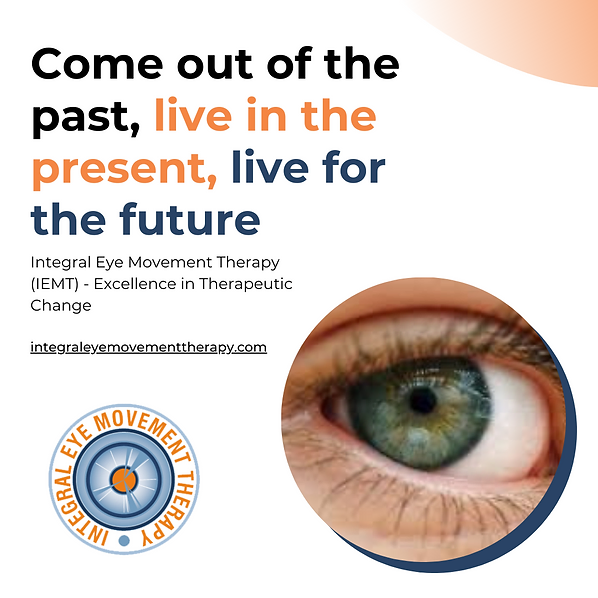

Integral Eye Movement Therapy (IEMT) doesn’t make any claims. It’s a new modality, and people are still doing research on it. There are a few studies that are promising, but it’s really not known exactly how it works and exactly what it’s doing. It’s certainly not a miracle cure, and doesn’t work for everyone. One theory is that it may change the way your brain processes the information it stores as memories in the brain, particularly the undesired emotions and responses associated with a specific memory.

Essentially, the method involves holding the problematic experience in mind while you move the eyes in specific directions. The result of this is that often that the experience loses its emotional impact.
When we are asked to think about any memory or feeling or thought, our eyes move in certain directions. They are doing this as they are searching in different parts of your brain for the information that you are asking for.
IEMT works with these eye accessing cues, along with the feelings or identity you are experiencing and helps dissasociate the emotion from the stored memories. The result of this is that the feeling or imagery loses its emotional impact and becomes far less.
The best part is the person doesn’t need to talk about the memory of what happened.
Here are some types of experiences that IEMT can be used for :
Your first day of school.
Being deliberately left out/excluded of a game/event/party.
Being the last one picked.
Not being liked back by someone you really liked.
Being bullied.
Being lost as a child.
Being set up/used.
Being unfairly blamed for something.
Being unfairly punished for something.
Being laughed at/mocked.
Losing to a bully/someone you don’t like anyway.
Having your trust betrayed.
Experiencing a parent’s anger/rage.
Experiencing a parent’s sorrow/suffering as a child.
Humiliation at the loss of a body function/physical control.
Having something stolen and being helpless to do anything about it.
Death of a loved pet.
All of the above are largely passive events – i.e. the control lay outside of ourselves. Also explore some of the following:
Picking on another child/sibling
Betraying someone else’s trust.
Dropping a friend for someone more popular.
Tormenting or torturing an animal/insect/living thing.
Knowingly taking for credit for someone else’s work.
Cheating at something.
Borrowing something and knowingly never bothering to give it back.
